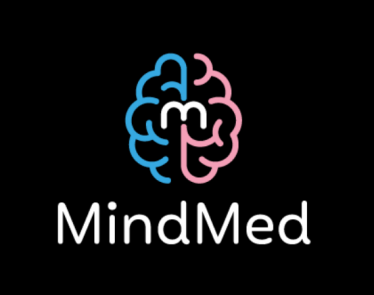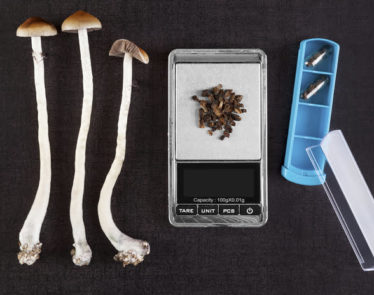
April 24, 2020 (MicroSmallCap via Comtex) — Opioid addiction has become the number one cause of accidental death in Canada and the United States for people under the age of 50. According to data from 2018, an average of 128 Americans die every day by overdosing on opioids, while the collective cost of the crisis is estimated to be about $78.5 billion per year. President Trump has deemed the opioid crisis a national emergency, though few steps have been taken thus far to minimize the impact of addictive substances like oxycodone, hydrocodone, fentanyl, and morphine. To begin tackling this enormous—and societally necessary—task, some pharmaceutical companies are developing potential solutions to treat or counteract opioid use disorder. A few of these companies, such as Mind Medicine (MindMed) Inc. (NEO: MMED) (OTCQB:MMEDF), Eli Lilly (NYSE:LLY), Adial Pharmaceuticals Inc (NASDAQ:ADIL), BioDelivery (NASDAQ:BDSI) and Knight Therapeutics (TSX:GUD), are even poised to deliver their offerings to market.
Mind Medicine’s Ibogaine-Based Solution
On March 3, the day that Mind Medicine (MindMed) Inc. (NEO: MMED) (OTCQB:MMEDF) opened for trading on the NEO Exchange, it became the world’s first publicly traded psychedelic pharmaceutical company. It promptly broke NEO’s record for the highest single-session volume, with more than 46.9 million shares changing hands that day. All this was after the company raised $24.2 million in a pre-public funding round.
Needless to say, MindMed is in a cash-rich position, which will allow the company to pursue its aim of developing psychedelic-based medicines to improve health, promote wellness, and alleviate suffering. While it has established a “microdosing” division and has developed a neutralizer technology intended to shorten and stop the effects of lysergic acid diethylamide (LSD), the company’s immediate priority is to address the ongoing opioid crisis and other forms of addiction.
In pursuit of this goal, MindMed is currently advancing 18-MC as a potential treatment for opioid withdrawal and opioid use disorder. A non-hallucinogenic molecule, 18-MC is based on the psychedelic ibogaine which occurs naturally in certain plants. Researchers originally began exploring ibogaine’s usefulness in treating substance use disorders back in the 1950s, though anti-drug laws have stifled the development of potential treatments derived from ibogaine for decades.
The drug candidate 18-MC was developed through a rational drug design program that aimed to generate a molecule with anti-addictive properties while also lacking hallucinogenic properties. Mind Medicine (MindMed) Inc. (NEO: MMED) (OTCQB:MMEDF) acquired the program last year, along with the company Savant HWP Inc., whose leadership team of top researchers and drug developers joined the organization.
In April 2020, MindMed began Phase 1 human safety trials of 18-MC and expects to begin Phase 2 trials before the end of the year. According to the company’s Co-CEO, JR Rahn, the end result of MC-18’s development could be the creation of an “antibiotic for addiction.”
Rahn adds that, while the current clinical trials are exploring 18-MC’s ability to treat opioid use disorder, MindMed has also been approached “to look at nicotine dependence related to the recent teen vaping crisis.”
In addition to ibogaine, the company plans on addressing the opioid crisis by developing next-generation versions of other psychedelic substances, such as LSD and psilocybin. According to its most recent corporate outlook, Mind Medicine (MindMed) Inc. (NEO: MMED) (OTCQB:MMEDF) is continuously developing a diverse pipeline of drugs derived from these psychedelics to leverage their unique medicinal properties and benefits.
Other Pharmaceutical Companies Doing Their Part
MindMed is joined in its efforts by a select group of leading pharmaceutical companies, some of which are making impressive strides towards product launches.
Adial Pharmaceuticals Inc.’s (NASDAQ:ADIL) leading drug candidate is AD04, which was recently granted a patent by the United States Patent and Trademark Office for the treatment of Opioid Use Disorder. The drug blocks a patient’s serotonin-3 receptor, thereby reducing the symptoms of withdrawal. In addition to its application for Opioid Use Disorder, AD04 is currently in Phase 3 clinical trials as a treatment for Alcohol Use Disorder. William Stilley, CEO of Adial, notes that “the physiology and neuro-transmitters involved in opioid addiction are similar to alcohol.”
For its part, BioDelivery (NASDAQ:BDSI) is taking on the opioid crisis by developing treatments that help patients manage chronic pain. Its flagship pain drug, Belbuca, is a type of opioid known as a “buprenorphine” which lasts longer than traditional opioids and thus requires fewer doses. Fewer doses mean the patient has a reduced chance of overdosing or becoming addicted.
Like BioDelivery, Knight Therapeutics Inc. (TSX:GUD) is also working on a buprenorphine-based treatment option for opioid dependence. Its lead offering, Probuphine, is an implant that maintains stable blood levels of buprenorphine, eliminating the need for individual doses. This—in combination with counseling and psychosocial support—can be used for long-term management of opioid dependence in some addicts, and can significantly reinforce their recovery process.
Finally, fighting the opioid crisis can also involve finding alternative ways to treat pain. To this end, Eli Lilly (NYSE:LLY) last year acquired the exclusive worldwide rights to non-opioid treatment for chronic pain. The non-addictive therapy was developed by Centrexion, a late clinical-stage biopharmaceutical company, and is currently in Phase I clinical trials as a treatment for chronic pain conditions.
Tackling the National Crisis
In 2018, an estimated 10.3 million Americans aged 12 and older misused opioids. That number will only continue to rise if innovative solutions aren’t found and brought to market.
There’s no denying that, beginning in the late 1990s, the pharmaceutical industry played a major role in creating the opioid epidemic. More than 20 years later, we’re beginning to see new pharmaceutical companies, like Mind Medicine (MindMed) Inc. (NEO: MMED) (OTCQB:MMEDF) and its contemporaries, work towards reducing the social impact of the crisis, with a long-term goal of ending it altogether.
For more information on Mind Medicine (MindMed) Inc. (NEO:MMED) (OTCQB:MMEDF), please visit microsmallcap.com.
Featured Image: Depositphotos © steveheap
Disclosure:
1) The author of the Article, or members of the author’s immediate household or family, do not own any securities of the companies set forth in this Article. The author determined which companies would be included in this article based on research and understanding of the sector.
2) The Article was issued on behalf, and sponsored by The NEO Exchange. Market Jar Media Inc. expects to receive from MindMed’s Digital Marketing Agency of Record (Native Ads Inc.)thirty-six thousand, one hundred and sixty dollars CAD for 3 campaign days (3 business days).
3) Statements and opinions expressed are the opinions of the author and not Market Jar Media Inc., its directors or officers. The author is wholly responsible for the validity of the statements. The author was not paid by Market Jar Media Inc. for this Article. Market Jar Media Inc. was not paid by the author to publish or syndicate this Article. The information provided above is for informational purposes only and is not a recommendation to buy or sell any security. Market Jar Media Inc. requires contributing authors to disclose any shareholdings in, or economic relationships with, companies that they write about. Market Jar Media Inc. relies upon the authors to accurately provide this information and Market Jar Media Inc. has no means of verifying its accuracy.
4) The Article does not constitute investment advice. Each reader is encouraged to consult with his or her individual financial professional and any action a reader takes as a result of the information presented here is his or her own responsibility. By opening this page, each reader accepts and agrees to Market Jar Media Inc.’s terms of use and full legal disclaimer as set forth here. This Article is not a solicitation for investment. Market Jar Media Inc. does not render general or specific investment advice and the information on MicroSmallCap.com should not be considered a recommendation to buy or sell any security. Market Jar Media Inc. does not endorse or recommend the business, products, services or securities of any company mentioned on MicroSmallCap.com.
5) Market Jar Media Inc. and its respective directors, officers and employees hold no shares for any company mentioned in the Article.












